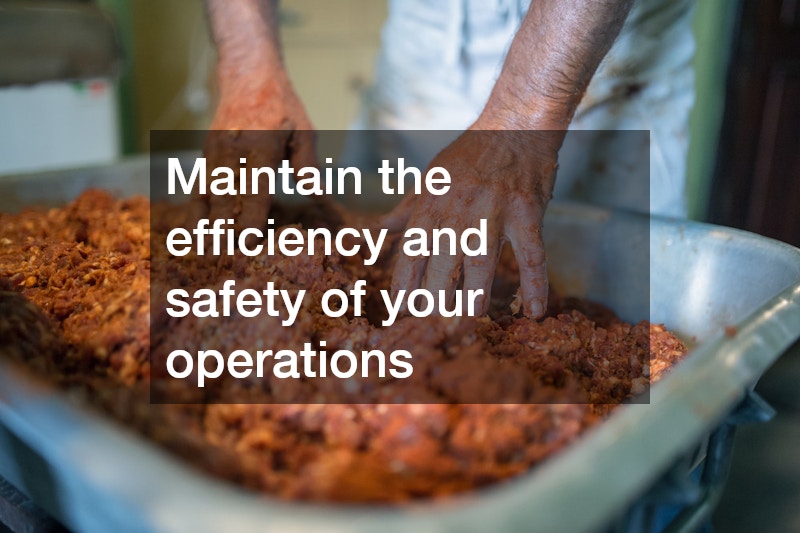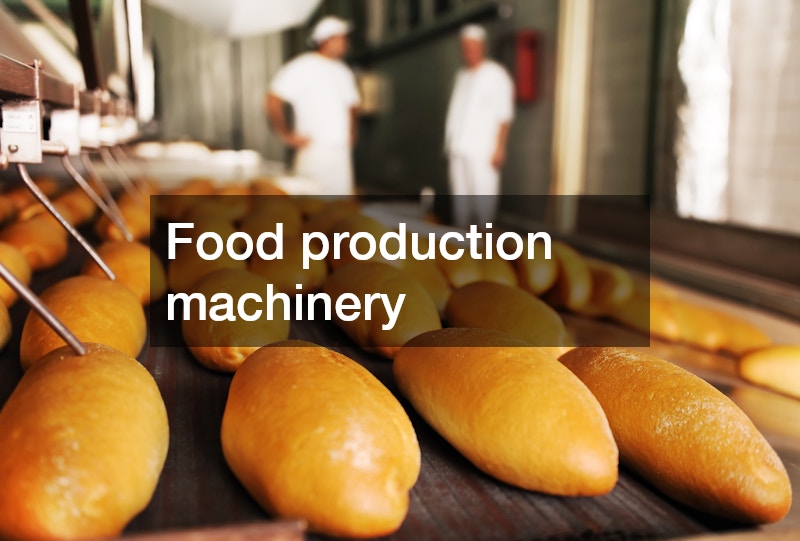

If you’re involved in the food industry, you know how crucial it is to maintain the efficiency and safety of your operations. A key element in achieving this is proper mechanical insulation service for your food and beverage processing equipment. Insulating these machines helps in regulating temperature, preventing energy loss, and ensuring safe working conditions.
When it comes to food industry machines, efficient insulation is essential to keep them running smoothly. Insulation helps in maintaining the right temperatures for various processes, reducing energy consumption, and extending the lifespan of the equipment. This is particularly important for food processing machines, which often operate under strict temperature controls to ensure quality and safety.

Food production machinery also benefits from specialized insulation services. Whether it’s for heating, cooling, or maintaining consistent conditions, insulation ensures these machines operate at optimal levels. In a competitive industry like food production, minimizing downtime and maintaining efficiency can significantly impact your bottom line. Having the right food processing machine on hand can make a world of difference! Investing in a quality mechanical insulation service can help protect your investment in equipment and reduce operational costs. By properly insulating your food and beverage processing equipment, you ensure your machines are safe, efficient, and well-maintained, allowing you to focus on delivering quality products.

A lot goes into the packaging and bottling of the foods you consume on a daily basis. Strict manufacturing rules and
regulations ensure that the food is fresh, clean, and safe for consumption. Without these strict regulations that are often set by the food and drug administration, or FDA, you would never know what you were consuming. The following safety procedures are important parts of the food and drink packaging processes.
Weight regulations
Food and drink usually comes in a package, can, or a bottle. These packaging modes are often pre measured and sold in specific measurements for easy purchase. This is why you may only see a couple of choices when purchasing your favorite soda. These weight regulations are not only for the purpose of selling. When the same amount of an item goes into a package every time, it is easier to establish dietary ingredients and things like calorie counts on the packages. The checkweigher machines are also divided into different weight sizes, with strict regulations set on each batch.
Manufacturing safety practices
It is also important that the machines and tools used during manufacturing are regulated for food quality. Each year roughly 1 out of 6 Americans (or 48 million people) get sick, 128,000 are hospitalized, and 3,000 die from foodborne diseases. Many of these foodborne diseases could have been prevented with proper manufacturing or food quality regulations, such as food metal detectors in new food packaging equipment.
Food metal detectors work similarly to the same metal detectors you see on the beach. Considering that most food and beverage products should not contain any metal, these detectors are extremely effective in identifying broken pieces. For example, a pouch filling machine may have a faulty part that breaks off during manufacturing. The checkweigher machines may leave traces of metal during the weighing process. The food metal detector brings awareness to these small, but dangerous traces of metal in the food, ensuring that it does not get produced to customers.
Temperature control
You are probably at least minimally aware of temperature controls when it comes to food storage. Restaurants must keep food stored under a maximum temperature to avoid fines. Even food manufacturers must have their storage coolers set to a specific temperature. Cold temperatures keep harmful bacteria from growing and multiplying. Refrigerators should be set no higher than 40 degrees Fahrenheit, and freezers set at 0 degrees Fahrenheit. These same temperature regulations can keep food and beverages safe in your home refrigerator.
Safe packaging materials
Regulating and monitoring the contents of the package is not enough. If the packaging material used is not safe and free of contaminants, it can reduce the overall quality of the food or drink. This is perhaps the hardest one to monitor. Many packaging materials are made out of plastics, a material that is often recycled. The plastic needs to be broken down and then remolded into a new product that better holds the new food or drink item.
Checkweigher machines may also be beneficial in packaging machines tasks. Checkweigher machines get a more accurate estimation of the amount of plastic that is needed for the bottle or pouch. Even when estimates are less than accurate, they are more preferable over other types of packaging. Packaging experts estimate that each pound of plastic packaging can reduce food waste by up to 1.7 pounds.
Food quality and safety is a top priority in the United States. As a result, we tend to have significantly fewer causes of foodborne illnesses. The FDA carefully regulates all food and beverage manufacturing plants. They regulate all aspects of the manufacturing process, including metal detecting, packaging inspections, and even checkweigher procedures. The extensive regulating process allows Americans to feel better about the food products they consume, both in the restaurant and grocery supplier environments.